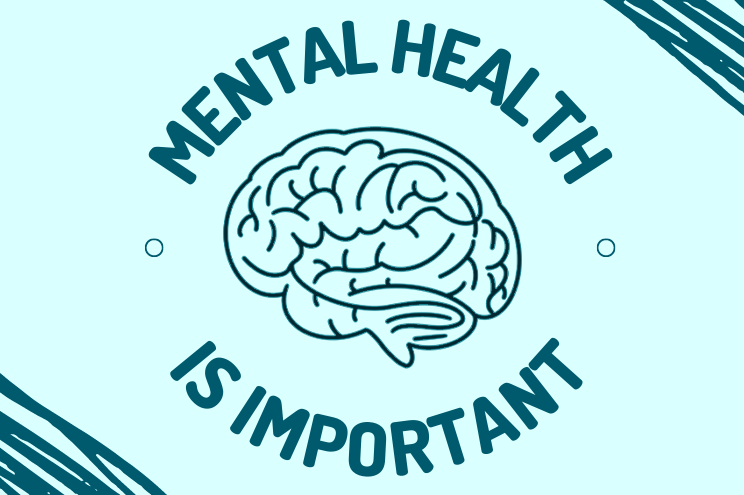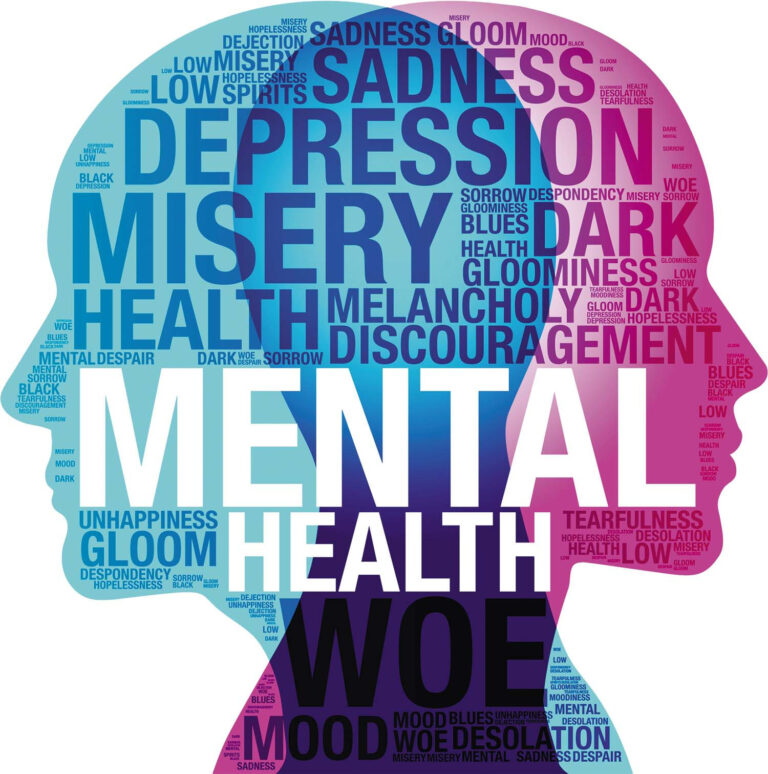Nightfall FAQs: The Answers You’ve Been Looking For

What is Nightfall?

Nightfall, also known as nocturnal emission or wet dream, is a phenomenon commonly experienced by males during puberty and throughout adulthood. It refers to the involuntary release of semen during sleep, often accompanied by erotic dreams. This natural bodily function is a result of the body’s regular production of semen, which needs to be expelled periodically to maintain reproductive health.
During adolescence, hormonal changes in the body lead to increased production of semen. Nightfall is a way for the body to discard excess semen, ensuring the reproductive system’s proper functioning. It is important to note that nightfall is not a sign of a disease or sexual dysfunction. Rather, it is a normal physiological process that varies from person to person in terms of frequency and intensity.
It is crucial to understand the normalcy of nightfall in order to have a healthy perspective on this topic. In the following sections of this article, we will explore the common causes, physical effects, prevention methods, and other related aspects of nightfall, providing a comprehensive overview for those seeking a better understanding of this natural occurrence.
Common causes of Nightfall
Nightfall, also known as nocturnal emissions or wet dreams, is a natural physiological process that occurs in men during sleep. While it is more common during puberty and adolescence, it can also happen in adult men. Nightfall is primarily caused by the body’s need to release excess semen, as the reproductive system continuously produces sperm.
One of the most common causes of nightfall is sexual arousal during the day, either through thoughts, experiences, or visual stimuli. This can result in increased blood flow to the genital area, leading to dreams and subsequent ejaculation during sleep. Additionally, hormonal changes, such as the surge in testosterone levels that occurs during the teenage years, can contribute to frequent nightfall. It is worth noting that nightfall is a normal and healthy process, serving as a mechanism for the body to maintain sexual health and release built-up tension.
• Sexual arousal during the day can cause nightfall.
• Hormonal changes, such as increased testosterone levels during puberty, can contribute to nightfall.
• Nightfall is a normal and healthy process that helps maintain sexual health and release tension.
Is Nightfall normal?
Nightfall, also known as nocturnal emission or wet dream, is a common phenomenon that occurs in males during sleep. It involves ejaculation of semen during sleep without any sexual stimulation or arousal. This natural occurrence is considered to be a normal part of sexual development and maturity in males.
During adolescence, the body goes through various hormonal changes and increased production of testosterone. These hormonal fluctuations can lead to increased sexual fantasies and dreams, which may result in nocturnal emissions. It is important to remember that experiencing nightfall is a normal and healthy process for most males during their teenage years and early adulthood.
Nightfall may vary in occurrence and frequency from person to person. Some individuals may experience it occasionally, while others may have it more frequently. It is worth noting that the frequency of nightfall tends to decrease with age as sexual desires and testosterone levels stabilize. It is also not uncommon for nightfall to cease completely as one progresses into adulthood.
While nightfall itself is considered normal, it is crucial to rule out any underlying medical conditions that may be causing its excessive or persistent occurrence. In some cases, frequent nightfall could be a symptom of an underlying health issue such as hormonal imbalances, urinary tract infections, or prostate problems. Seeking medical advice is recommended if nightfall becomes a recurrent issue or if it is accompanied by other concerning symptoms.
In the upcoming sections, we will explore the common causes of nightfall, its physical effects, and possible ways to prevent or manage it. Please note that individual experiences may differ, and it is always best to consult a healthcare professional for personalized guidance.
How often does Nightfall occur?
Nightfall, also known as nocturnal emission or wet dream, is a common occurrence among men during sleep. It is a natural and involuntary release of semen, usually accompanied by sexual dreams or fantasies. The frequency of nightfall varies from individual to individual and can differ based on age, lifestyle, and overall sexual health.
During adolescence, when hormonal changes are at their peak, nightfall is more frequent and can occur multiple times a week. As men grow older, the frequency of nightfall generally decreases. In adulthood, it is considered normal for nightfall to occur occasionally, typically once or twice a month. However, it is important to note that these are average figures, and variations can exist.
It is essential to understand that the occurrence of nightfall at any frequency does not indicate any underlying medical condition or sexual dysfunction. Nightfall is a natural and healthy process that allows the body to release excess semen. However, if the frequency of nightfall becomes excessive or causes distress, it is advisable to seek medical advice to rule out any potential underlying issues. Overall, nightfall should be viewed as a normal part of a man’s sexual development and reproductive health.
Does Nightfall have any physical effects?
Nightfall, also known as nocturnal emission or wet dream, refers to the involuntary ejaculation of semen during sleep. While it is a natural occurrence in males, many people wonder if nightfall has any physical effects. It is important to note that nightfall itself does not pose any significant physical harm or health risks. The body has its own mechanism to release excess semen, and nightfall is one of the ways it does so.
During a nightfall episode, the body expels semen through ejaculation, which can result in a temporary feeling of weakness or fatigue. Additionally, some individuals may experience a bit of soreness in the genital area due to the involuntary contractions of the reproductive organs during ejaculation. However, these effects are usually short-lived and do not cause any lasting physical damage. It is important to understand that nightfall is a completely normal occurrence and should not be a cause for concern unless it becomes excessively frequent or disrupts daily life.
Can Nightfall be prevented?
Nightfall, also known as nocturnal emissions, is a natural occurrence that typically resolves on its own without treatment. However, since it can be a source of embarrassment or concern for some individuals, it is understandable to wonder if there are ways to prevent or reduce its frequency.
While there is no foolproof method to completely prevent nightfall, there are certain lifestyle changes that may help manage its frequency. Maintaining a healthy and balanced diet, rich in essential nutrients, may play a role in keeping the reproductive system in optimal condition. In particular, foods high in zinc, such as seafood, pumpkin seeds, and spinach, have been suggested to have potential benefits in promoting overall reproductive health. Additionally, some studies have indicated that engaging in regular exercise and managing stress levels through practices like relaxation techniques or meditation may have a positive impact on reproductive health. However, it is important to note that more research is needed to establish a direct link between these lifestyle factors and preventing nightfall.
Remember, it is essential to consult a healthcare professional or specialist in cases of excessive or distressing nightfall, as they can provide personalized advice and guidance tailored to your specific situation.
Are there any home remedies for Nightfall?
There are several home remedies that some people have tried to alleviate the occurrence of nightfall. One common suggestion is to practice good sleep hygiene, which includes maintaining a regular sleep schedule, creating a comfortable sleeping environment, and avoiding stimulating activities before bedtime. Additionally, incorporating certain foods into your diet may also be beneficial. Some individuals believe that consuming foods rich in zinc, vitamin E, and fenugreek seeds can help reduce nightfall frequency. However, it is important to note that these remedies are based on anecdotal evidence and further research is needed to support their effectiveness.
Another home remedy that some people may find helpful is the practice of Kegel exercises. Kegel exercises are typically recommended for strengthening the pelvic floor muscles, but some individuals believe they can also help prevent nightfall. These exercises involve contracting and relaxing the muscles that control urination. By regularly performing these exercises, it is believed that individuals may have better control over their ejaculation, potentially reducing the chances of experiencing nightfall. However, it is essential to consult with a healthcare professional before engaging in any new exercise regime to ensure it is safe and appropriate for your specific needs.
When should I seek medical help for Nightfall?
Nightfall, also known as nocturnal emission, is a natural physiological process that occurs in males during sleep. In most cases, it is a harmless occurrence and does not require medical intervention. However, there are certain instances when seeking medical help for nightfall is advisable.
If you experience an unusually high frequency of nightfall or if it is accompanied by other symptoms such as pain, discomfort, or persistent fatigue, it is recommended to consult a healthcare professional. Additionally, if you have concerns about the impact of nocturnal emissions on your sexual health or fertility, seeking medical guidance can provide clarification and peace of mind.
While occasional nightfall is considered normal, if you notice any sudden or significant changes in the frequency or intensity of nightfall, it is important not to ignore them. Consulting a healthcare provider can help identify any underlying medical conditions that may be contributing to these changes and enable appropriate treatment, if necessary. Remember, discussing your concerns openly with a healthcare professional can provide valuable guidance and ensure your overall well-being.
Can Nightfall affect fertility?
Nightfall, also known as nocturnal emission or wet dream, is a natural occurrence that most men experience at some point in their lives. It is a spontaneous release of semen during sleep, often accompanied by sexual dreams. Many individuals wonder whether nightfall can have any impact on fertility.
It is important to note that occasional nightfall does not typically affect fertility in men. Nightfall is a normal part of sexual development and is even considered beneficial by some experts. It helps to prevent the buildup of excess sperm and maintains the overall health of the reproductive system. However, if nightfall becomes frequent and starts interfering with daily life, it may be a sign of an underlying medical condition that requires attention. In such cases, it is advisable to consult healthcare professionals for a thorough evaluation and appropriate treatment, if necessary.
Research studies have suggested that there is no direct relationship between nightfall and fertility issues. In fact, regular ejaculation, whether through nightfall or sexual activity, is believed to promote healthy sperm production and sperm motility. However, it is important to note that infertility can be caused by a variety of factors, including underlying medical conditions or abnormalities in the reproductive system. If a couple is experiencing difficulty conceiving, it is recommended to consult a fertility specialist for a comprehensive evaluation and appropriate guidance.
Is Nightfall related to sexual activity?
Nightfall, also known as nocturnal emission or wet dream, is a natural occurrence that commonly happens during sleep in males. It is a spontaneous release of semen through ejaculation, often accompanied by sexual dreams or fantasies. While nightfall is related to sexual activity in the sense that it involves ejaculation, it does not require any direct sexual stimulation or interaction.
Nightfall is a normal physiological process that typically occurs in males during puberty and continues intermittently throughout adulthood. It is triggered by hormonal changes and the body’s natural release mechanism. It is important to note that nightfall is not an indicator of sexual dysfunction or any underlying medical condition. Instead, it is a normal part of sexual development and reproductive health in males.
Can stress or anxiety trigger Nightfall?
Stress and anxiety are common conditions that can affect various aspects of our lives. When it comes to nightfall, also known as nocturnal emission or wet dreams, stress and anxiety can indeed play a role. The exact mechanism behind this association is not fully understood, but it is believed to be related to the effects that these psychological factors can have on hormone levels and sexual arousal.
Research suggests that increased stress and anxiety can lead to changes in hormone levels, specifically an increase in cortisol, the primary stress hormone. These changes in hormone levels may contribute to an increase in sexual arousal and potentially trigger nightfall episodes during sleep. Additionally, stress and anxiety can also affect sleep patterns, leading to disruptions in the normal sleep cycle, which may further contribute to the occurrence of nightfall.
It is important to note that while stress and anxiety can be contributing factors to nightfall, they are not the sole cause. There can be multiple underlying factors that lead to nightfall, including hormonal changes, sexual inactivity, and even certain medical conditions. Understanding the various causes and their interactions can help individuals better manage and address nightfall, allowing for improved overall sexual health and well-being.
How does age affect Nightfall?
Age can have a significant impact on the occurrence of Nightfall. It is important to note that Nightfall is most common during adolescence and early adulthood. During this period, hormonal fluctuations and increased sexual arousal can lead to more frequent episodes of Nightfall. Studies have shown that as individuals age, the frequency of Nightfall tends to decrease. This can be attributed to a decrease in hormone production and a decrease in sexual activity. However, it is important to keep in mind that Nightfall can still occur in older individuals, although it may be less frequent.
As individuals reach their middle and older age, the occurrence of Nightfall becomes less common. This can be due to a decrease in testosterone levels and a decrease in sexual activity. Additionally, age-related changes in the prostate gland can also play a role in reducing the occurrence of Nightfall. However, it is important to understand that individual experiences may vary, and some older individuals may still experience Nightfall. It is also worth noting that the frequency and intensity of Nightfall can be influenced by various factors such as overall health, lifestyle, and underlying medical conditions.
Are there any lifestyle changes that can help manage Nightfall?
Lifestyle changes play a significant role in managing nightfall. Incorporating healthy habits into your daily routine can help reduce the frequency of nightfall episodes. Firstly, maintaining a balanced and nutritious diet is crucial. Include foods rich in vitamins, minerals, and antioxidants, such as fruits, vegetables, whole grains, and lean proteins. Avoid consuming excessive spicy or fried foods, as they can potentially trigger nightfall.
Regular exercise is also essential for managing nightfall. Engaging in physical activities not only promotes overall well-being but also helps regulate hormonal levels. Aim for at least 30 minutes of moderate-intensity exercise, such as brisk walking, jogging, or cycling, on most days of the week. Additionally, practicing relaxation techniques, such as yoga or meditation, can help reduce stress and anxiety, which may contribute to nightfall.
Incorporating these lifestyle changes into your daily routine can positively impact the management of nightfall. However, it is important to remember that individual experiences may vary, and consultation with a healthcare professional is recommended for personalized guidance and support.
Are there any underlying medical conditions associated with Nightfall?
Nightfall, also known as nocturnal emission or wet dream, is a natural physiological process that occurs during sleep. It is a normal and common occurrence in males, particularly during adolescence and early adulthood. While nightfall is generally considered a normal physiological response, there are certain underlying medical conditions that may contribute to its occurrence.
One potential underlying medical condition associated with nightfall is hormonal imbalance. Fluctuations in hormone levels, particularly the hormone testosterone, can influence the frequency of nightfall. Conditions such as hypogonadism, where the body does not produce enough testosterone, or hyperthyroidism, where there is an overproduction of thyroid hormones, can disrupt the hormonal balance and potentially lead to increased nightfall.
Another medical condition linked to nightfall is sexual dysfunction. Some individuals who experience nightfall may also be dealing with issues such as erectile dysfunction or premature ejaculation. These conditions can be caused by various factors, including psychological factors like stress, anxiety, or relationship problems, as well as underlying physical health conditions.
In conclusion, while nightfall is considered a normal and natural occurrence, there are certain underlying medical conditions that can contribute to its frequency. Hormonal imbalances and sexual dysfunction are among the potential underlying medical conditions associated with nightfall. If you are experiencing excessive nightfall or have concerns about your sexual health, it is advisable to consult a healthcare professional for further evaluation and guidance.
What is Nightfall?
Nightfall, also known as nocturnal emission or wet dream, refers to the involuntary ejaculation of semen during sleep.
Is Nightfall normal?
Yes, Nightfall is considered normal and is a common occurrence, especially during puberty.
How often does Nightfall occur?
The frequency of Nightfall varies from person to person. It is most common during adolescence and decreases with age.
Does Nightfall have any physical effects?
No, Nightfall is a natural physiological process and does not have any harmful physical effects on the body.
Can Nightfall be prevented?
Nightfall cannot be completely prevented as it is a natural process. However, maintaining a healthy lifestyle and managing stress levels may help reduce its frequency.
Are there any home remedies for Nightfall?
While there are no specific home remedies for Nightfall, practicing good sleep hygiene and engaging in regular exercise may help manage it.
When should I seek medical help for Nightfall?
Medical help for Nightfall is generally not required as it is considered normal. However, if it causes distress, disrupts daily life, or persists beyond adolescence, consulting a healthcare professional may be beneficial.
Can Nightfall affect fertility?
No, Nightfall does not affect fertility. It is a common and natural process that does not impact a person’s ability to conceive.
Is Nightfall related to sexual activity?
Nightfall is not directly related to sexual activity. It is a spontaneous release of semen during sleep and is not influenced by sexual engagement.
Can stress or anxiety trigger Nightfall?
While stress and anxiety can contribute to hormonal changes in the body, there is no direct evidence suggesting that they can trigger Nightfall.
How does age affect Nightfall?
Nightfall is most common during adolescence and tends to decrease with age. It is less frequent in adulthood and may occur occasionally or stop altogether.
Are there any lifestyle changes that can help manage Nightfall?
Maintaining a healthy lifestyle, including regular exercise, stress management techniques, and adequate sleep, may help manage Nightfall to some extent.
Are there any underlying medical conditions associated with Nightfall?
Nightfall is typically a normal physiological process. However, if it occurs excessively or is accompanied by other symptoms, it may be associated with underlying medical conditions such as hormonal imbalances or prostate issues. It is advisable to consult a healthcare professional for further evaluation.






